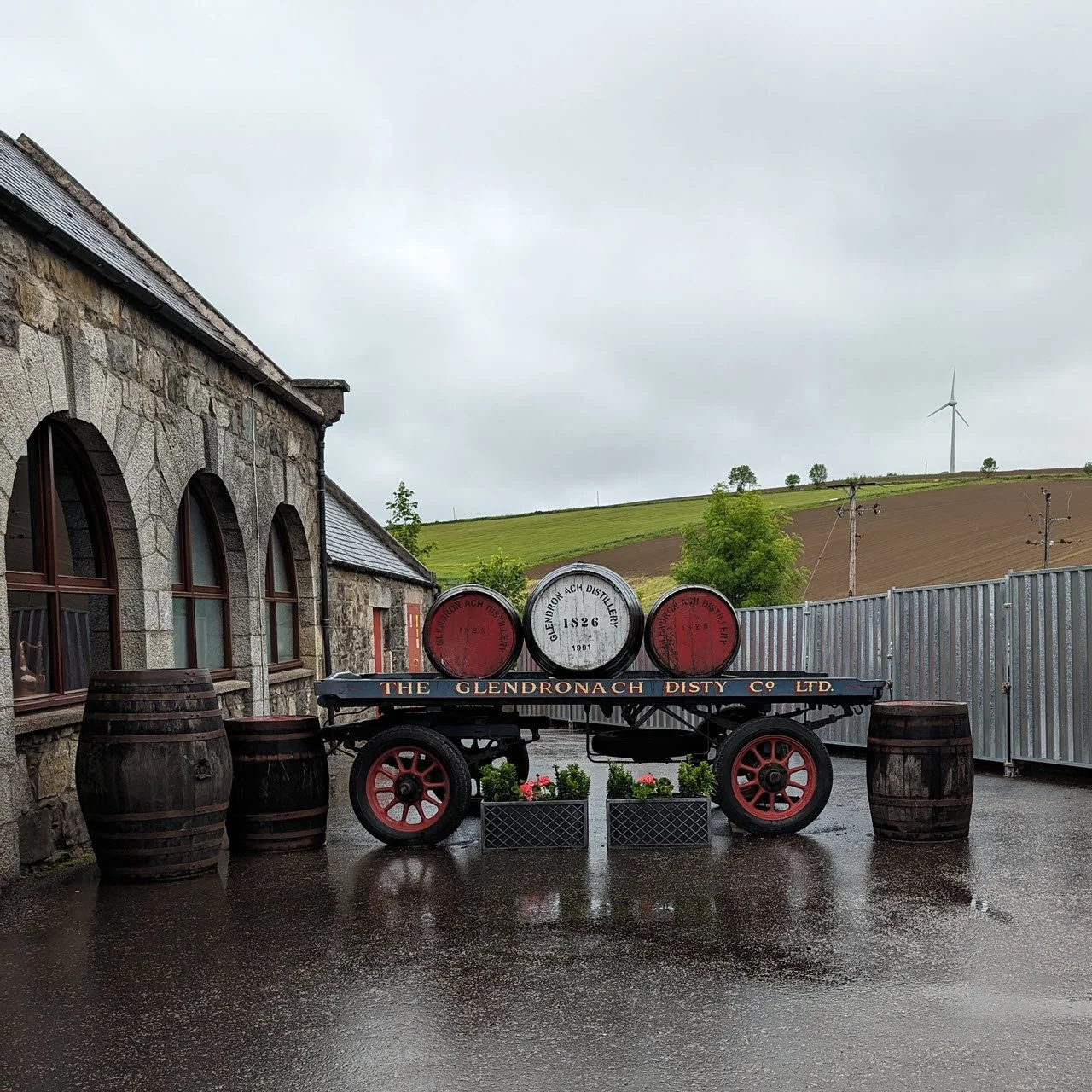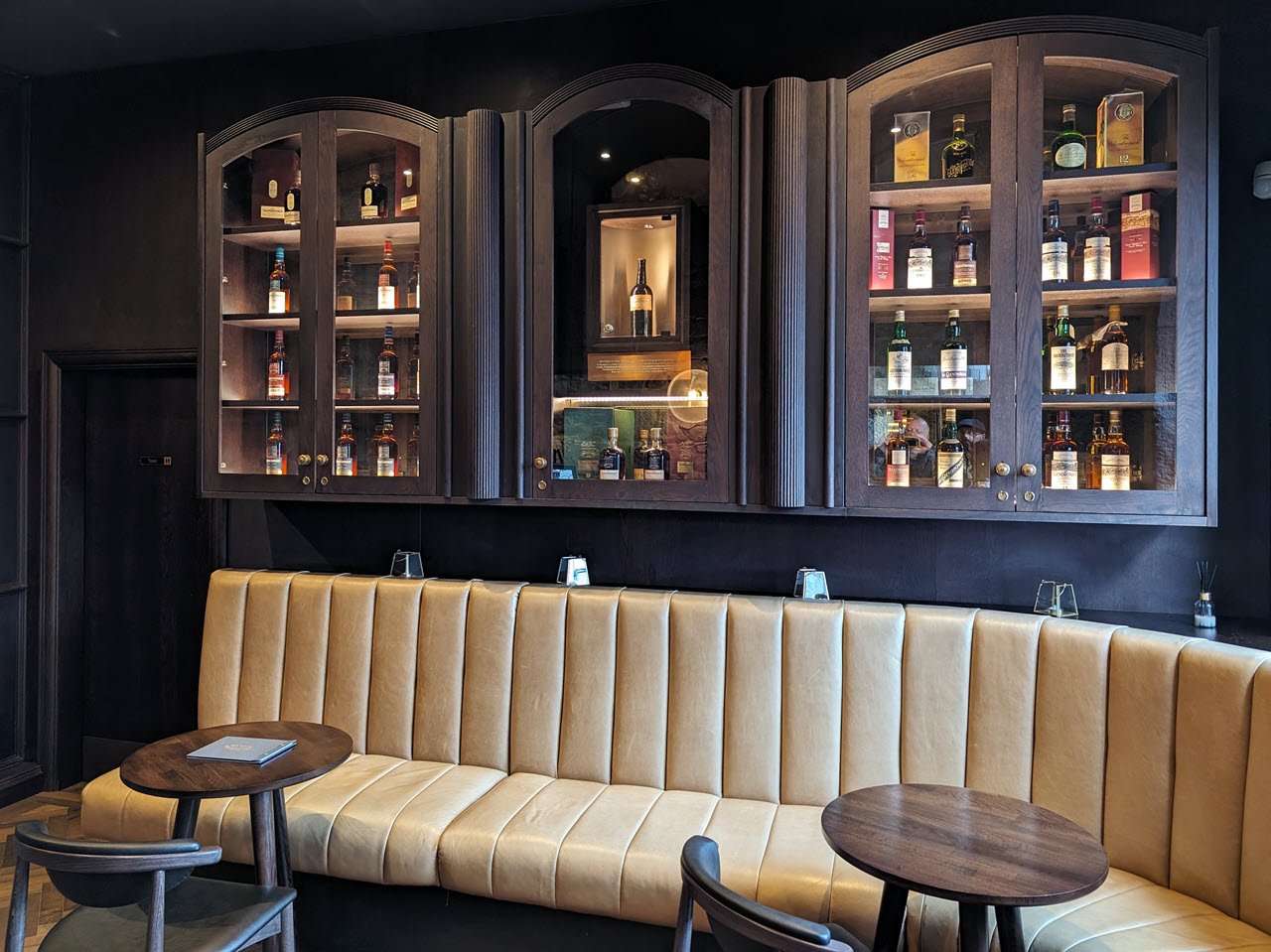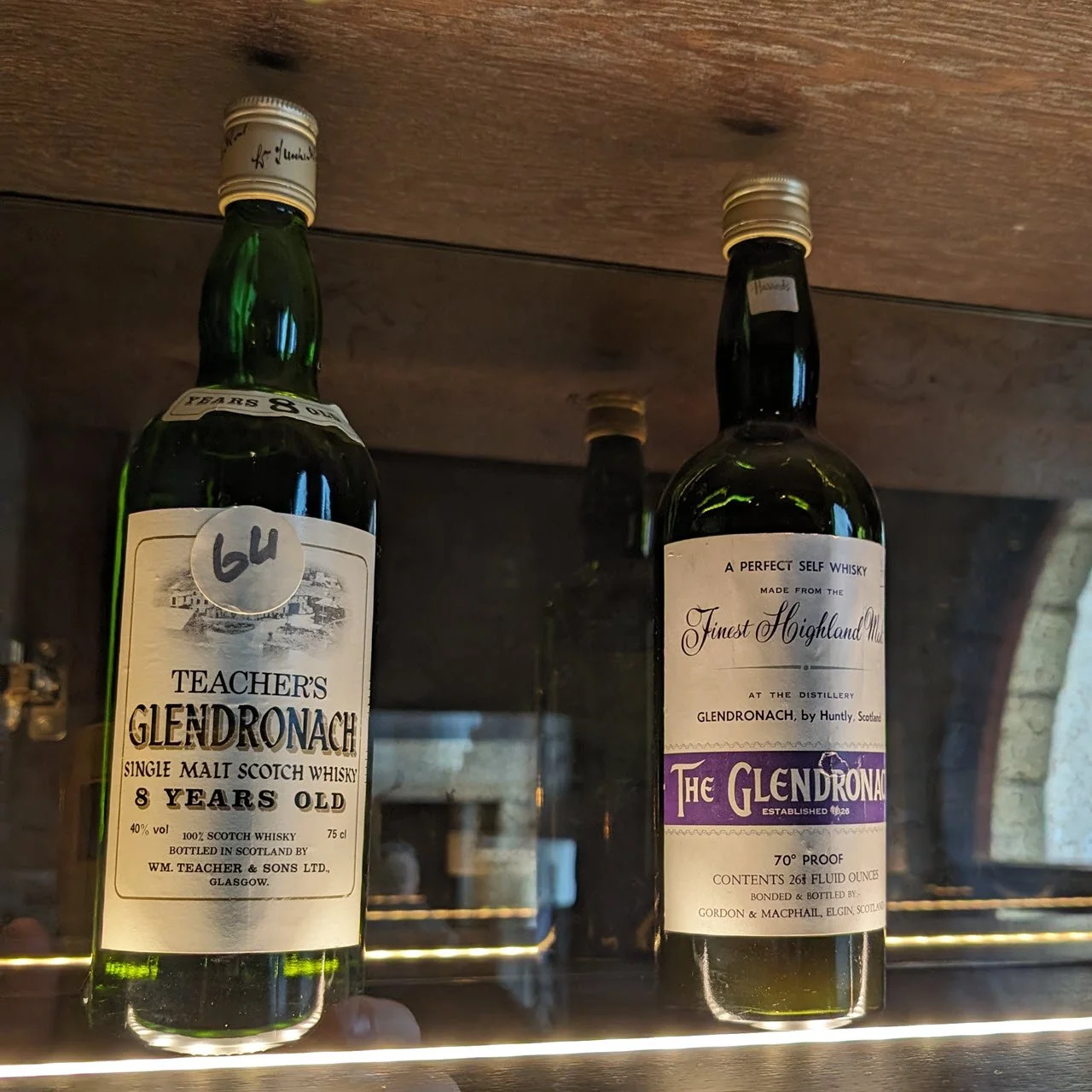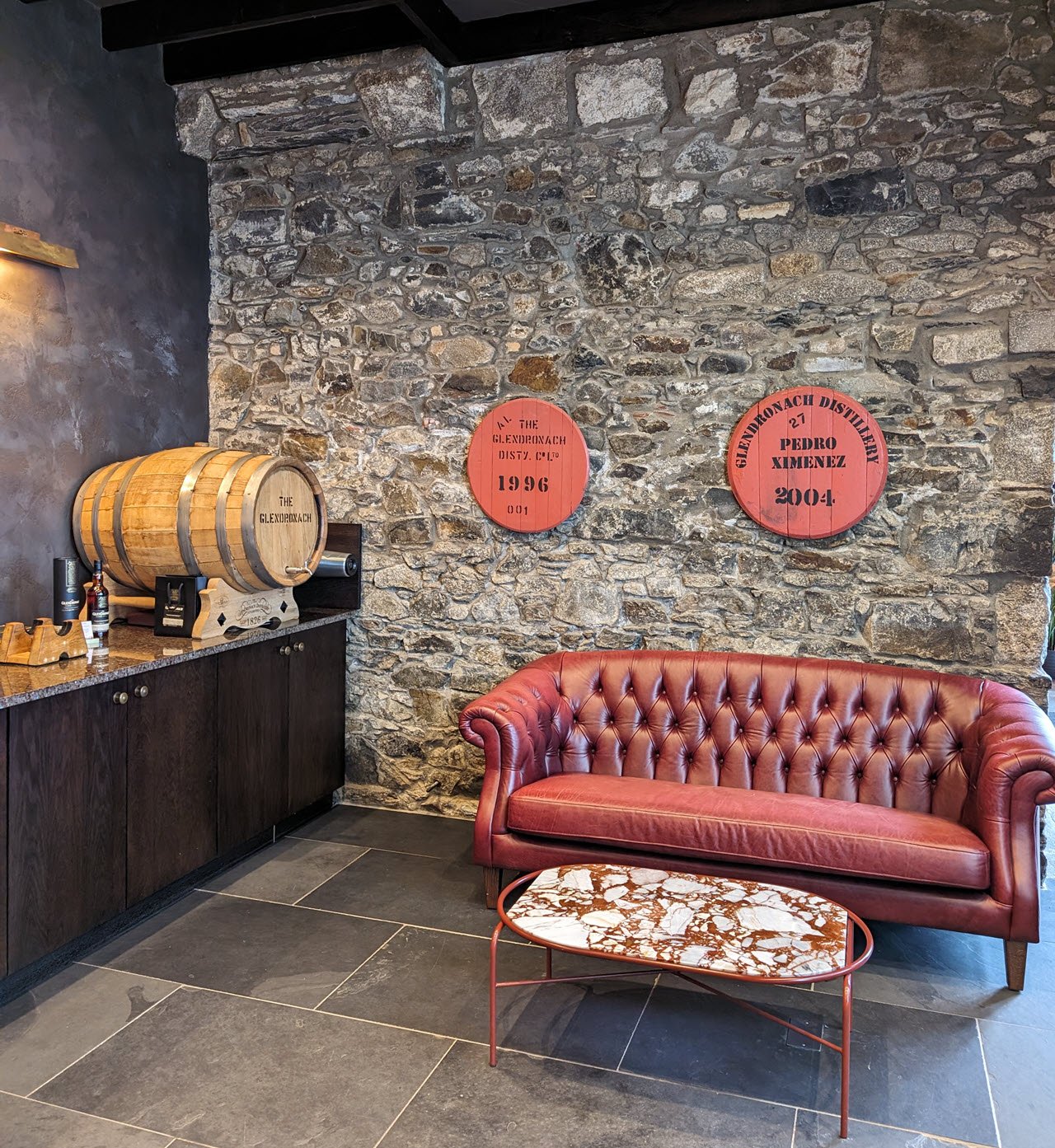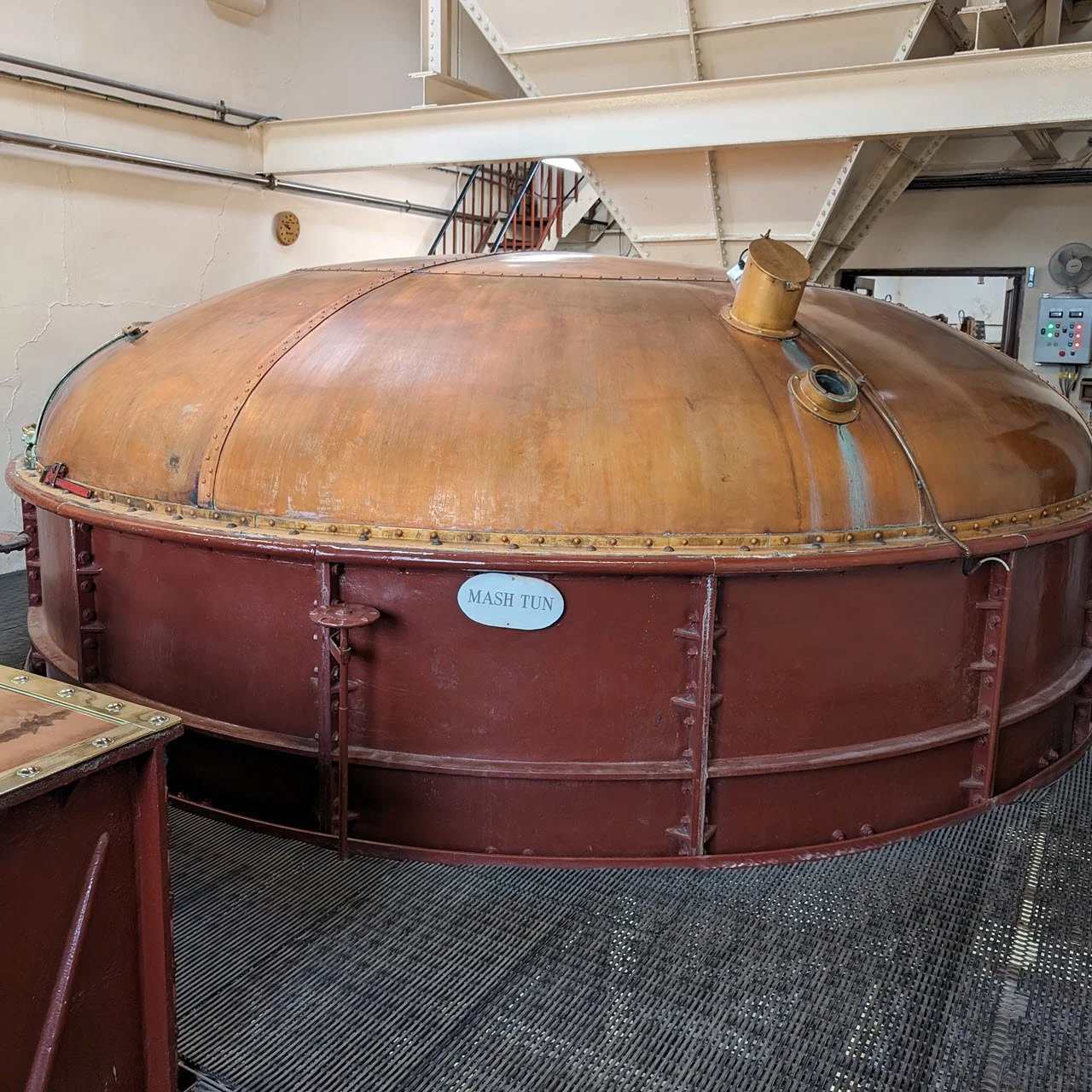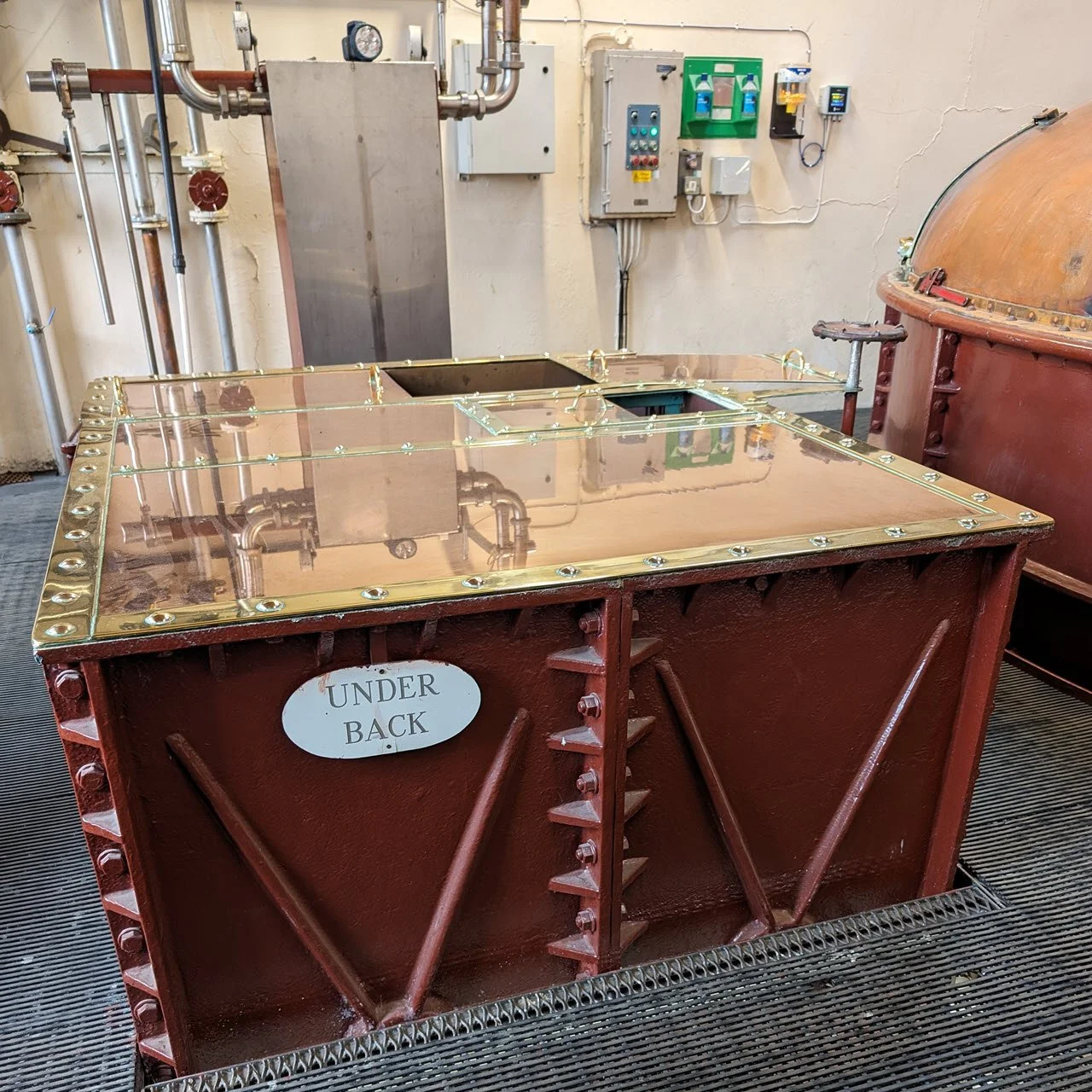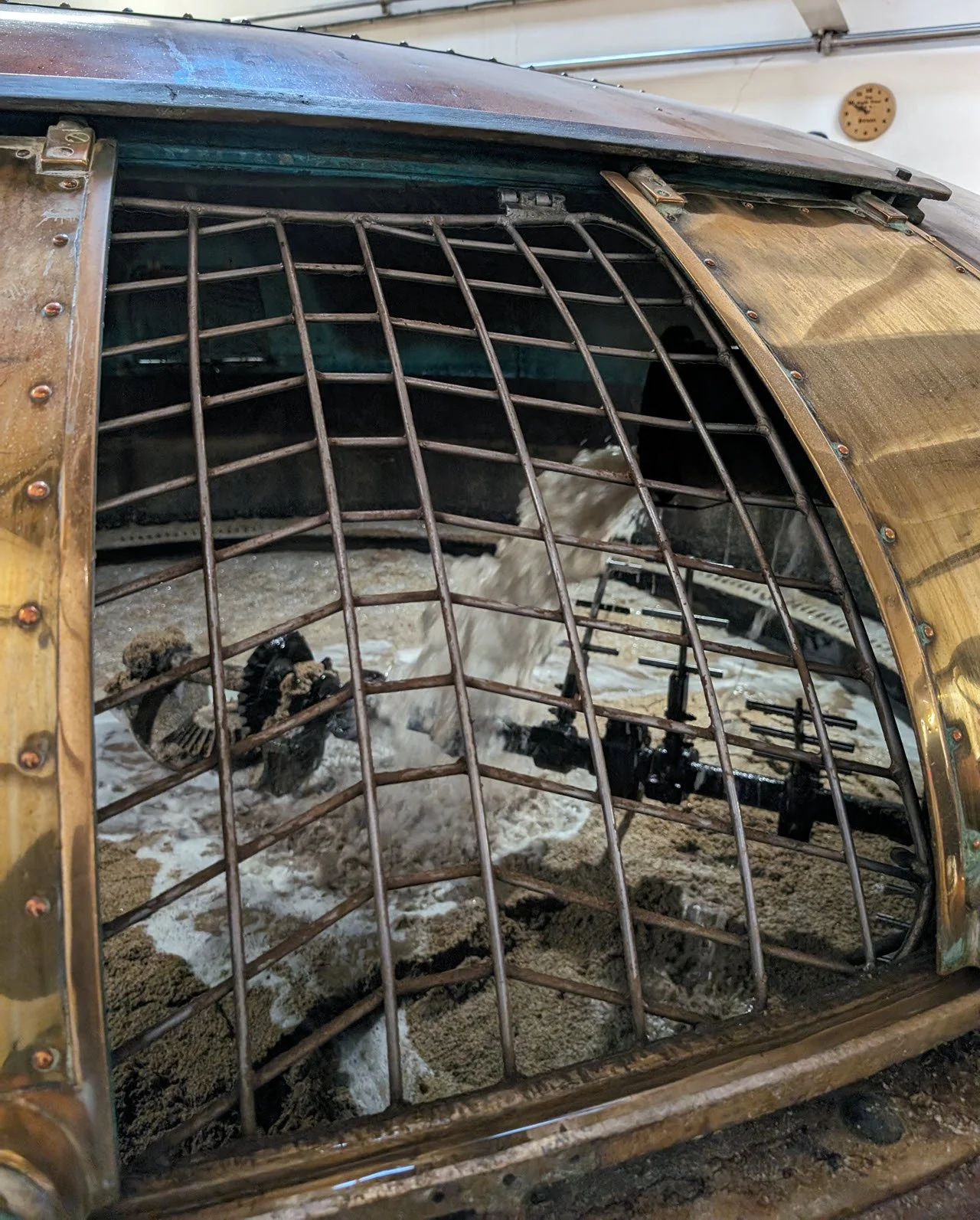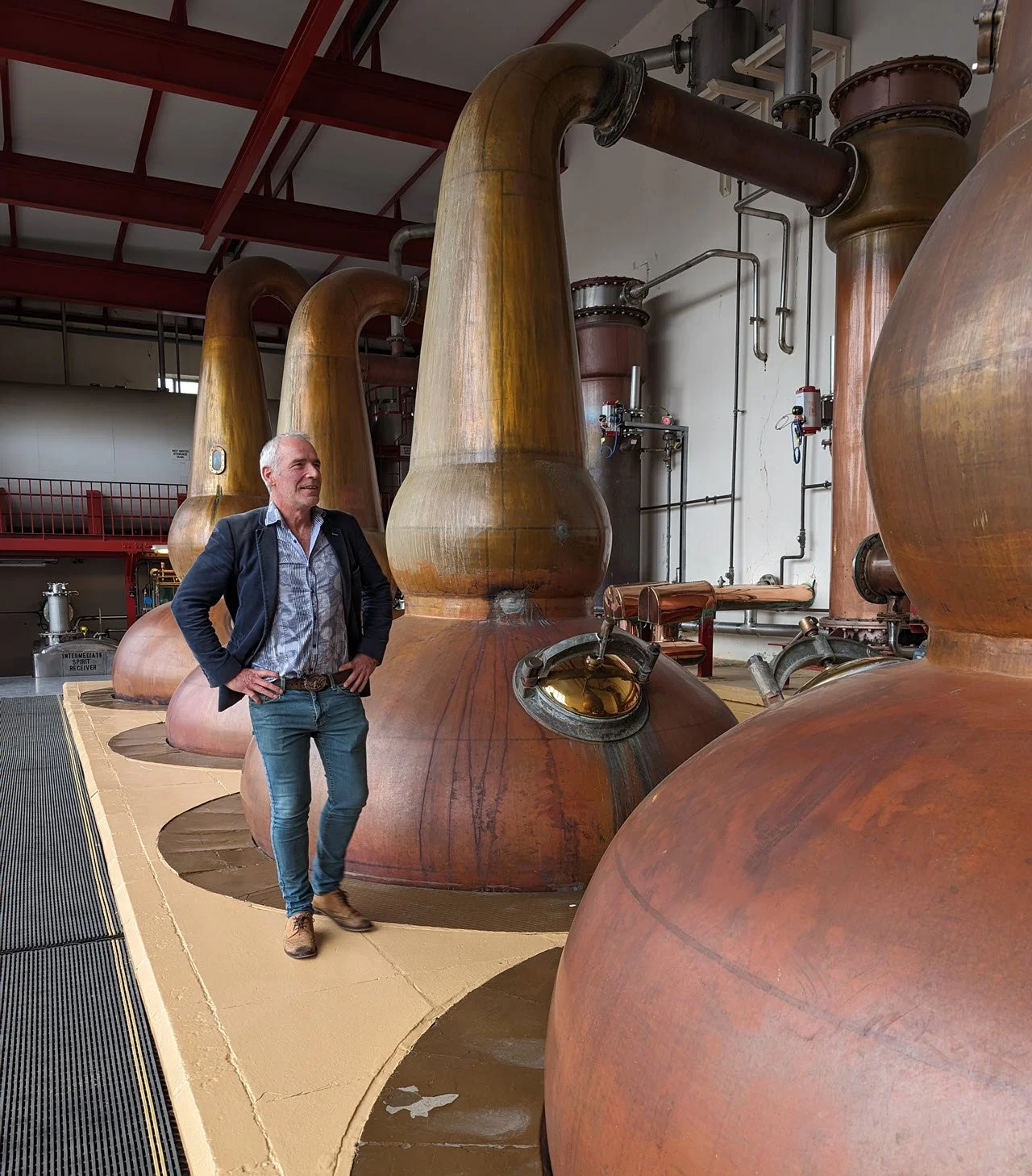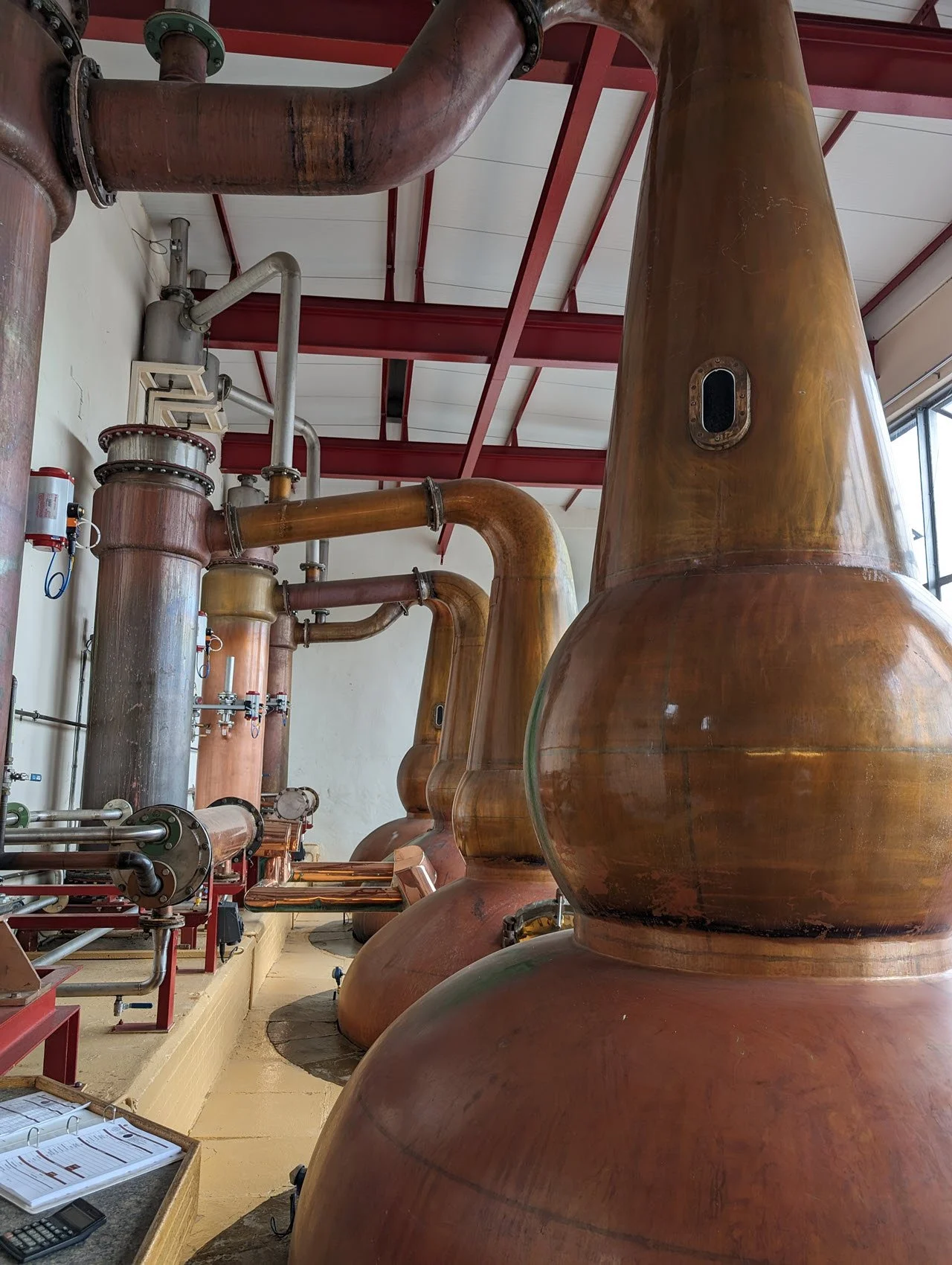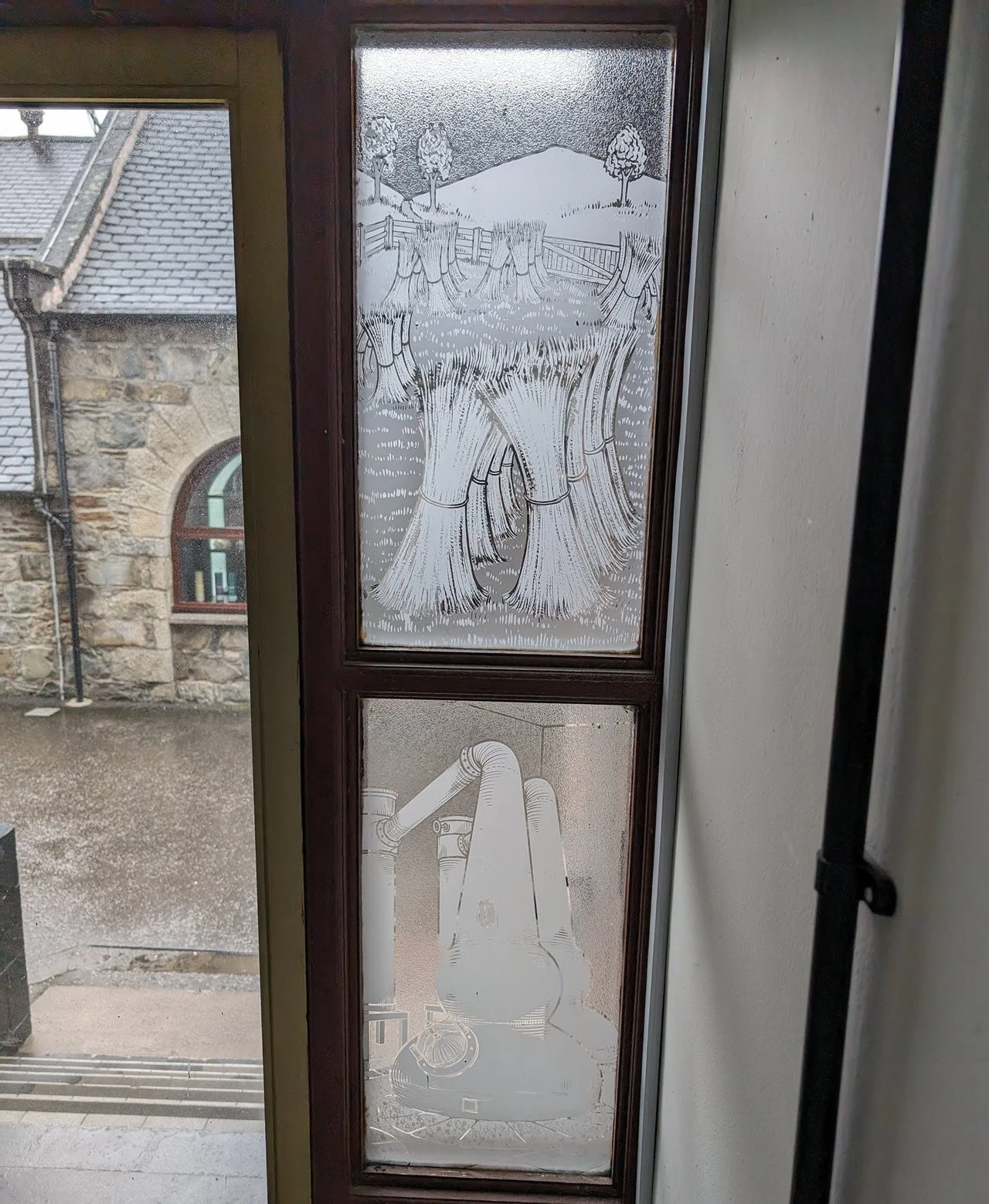Visiting GlenDronach Distillery
How to get there
The entrance to the distillery.
Located in the Aberdeenshire countryside of Scotland, near the village Forgue, GlenDronach Distillery is a treasure trove of whisky heritage.
Getting there is fairly straight forward, with the nearest major city, Aberdeen, about 70 kilometers to the east. From Aberdeen, the scenic drive through rolling hills and pastures is an experience in itself.
Public transport options are limited, so I recommend renting a car or joining a guided whisky tour.
The history
GlenDronach Distillery, founded in 1826 by James Allardice, is one of the oldest distilleries in the country and has always been known for its bold, sherry-cask-matured single malts.
Over the years, GlenDronach’s story has had its ups and downs, with changes in ownership and even a period of closure. But in 2008, Billy Walker and fellow investors stepped in, breathing new life into the distillery. The distillery is now owned by Brown-Forman, who took over in 2016 and continue to uphold GlenDronach's legacy of quality and tradition. Billy’s passion for traditional methods and his keen sense of what makes GlenDronach special helped reestablish it as a world-class producer.
For more on GlenDronach’s fascinating history, check out their official website.
More details from the entrance to the visitors center.
The legend, Stewart Buchanan, and myself.
My discovery
Visiting GlenDronach was an eye-opening experience. Walking through the distillery, I was struck by the harmonious blend of heritage and innovation. The visitor center is very classy, and a place you can spend some time. The same goes for the onsite distillery shop.
Very relaxing lounge area of the visitor center.
Lots of historic bottlings on display. Notice the text “A perfect self whisky” on the bottle on the right.
Now that is a proper bar!
The two casks for hand-filled bottlings on offer are located to the right of the bar in the previous image.
Here are some standout details from my tour:
The production
Here are some of the facts I picked up on our in depth VIP tour, hosted by Stewart Buchanan himself.
Barley Usage: Each run uses 7.6 tons of barley
Mashing: The mashing process involves three waters: 65°C, 84-86°C, and 95-96°C.
Fermentation: A 65-hour fermentation period develops fruity notes of green apple, orchard fruit, and green almond.
Washbacks: Nine wooden washbacks, all built between 2009 and 2012, crafted from Scottish larch.
Distillation: Four pot still; two wash stills and two spirit stills. The foreshot during the second distillation lasts 15 minutes.
Both pretty and old-school, isn’t it?
This is probably the most shiny and beautiful underback I have seen at any distillery!
Action shot!
Yep! The Scottish larch at work.
Stewart showing off his copper!
Details showing you the angle of the lyne arms. We are nerds, are we not?
Peated whisky revival
While GlenDronach is famed for its sherry-forward style, they’ve also been exploring their peated heritage since 2011. The introduction of medium peated whiskies, with a peat level of 18-24 ppm, is a nod to the distillery’s history.
I love all these details found throughout the distillery. Classy!
Cask maturation
The sherry influence at GlenDronach is highly noticeable. Today the ex-bourbon casks are the most used for maturing Scotch single malt whisky, however historically, Scottish distilleries used various casks for maturation, including wine and fortified wine casks. Before the 1840s, rum casks were actually the most common, largely due to the British Navy being massive consumers of said spirit.
GlenDronach, became synonymous with sherry cask maturation early on. Today, they rely on Spanish oak ex-Pedro Ximénez and ex-Oloroso sherry casks, seasoned for 18-24 months, to age their core range whiskies.
Shh! The spirit is resting!
Warehouse and Stock
With 45,000 casks maturing on-site, GlenDronach’s warehouses hold a lot of liquid gold. It is well worth noting also that all their production goes into single malt whisky - none is used for blending.
Tasting
We ended the visit with a special tasting of four whiskies:
GlenDronach Parliament, 21 YO, 48%
GlenDronach Cask Strength Batch 12, 8-12 YO,
GlenDronach Hand-Filled Pedro Ximénez Puncheon, 11 YO, 61.6%
GlenDronach Hand-Filled Oloroso Puncheon, 13 YO, 58.8%
I have of course tried the Parliament on several occasions, and hold it as something of a favourite. The various batches of the CS version are also always interesting, but the standouts were the two hand-filled releases. Stunning - both of them!
A very swanky tasting room!
Stewart Buchanan guiding us though a memorable tasting.
Final thoughts
GlenDronach Distillery is a great distillery to visit. You will love the history, the craftsmanship, and the passion. For me, this visit was an adventure. If you’re a fellow whisky enthusiast planning a trip to Scotland, GlenDronach deserves a visit.
Slàinte!
-Thomas


